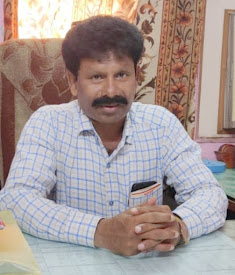STATEMENT REFERRED TO IN REPLY TO PARTS (a) TO
(c) OF RAJYA SABHA STARRED QUESTION NO. 235 FOR 13TH MARCH 2013 BY SHRI K.N.
BALAGOPAL REGARDING “ALL INDIA STRIKE BY TRADE UNIONS”.
(a) & (b): Yes, Sir.
Government was aware of the two days all India Strike by different trade unions
on February 20 and 21, 2013. A meeting was convened by Union Minister of Labour
& Employment with the representatives of Central Trade Unions (CTUs) on 13th
February, 2013 to discuss the charter of demands. The demands of CTUs were
discussed at length. It was clarified to the Union representatives that
their demands would be looked into by the Government and they were requested to
withdraw strike. The Hon’ble Prime Minister also made an appeal to CTUs to
withdraw their country-wide General Strike. Subsequently, a group of Senior
Ministers of the Cabinet held a meeting with the representatives of the major
CTUs on 18th February, 2013. The GoM assured the representatives of CTUs that
Government is serious on the demands related to working class and taking all
possible measures to redress them. They also appealed to the representatives of
CTUs to reconsider their stand for going on strike.
(c): Government
has taken various measures to address the concerns raised by the trade
unions. Particular attention is drawn to the huge amount of food subsidy
incurred by the Government to ensure availability of food grains to the poor at
very concessional rate through the Public Distribution System. The Government’s
efforts to pass the Food Security Bill in the Parliament will further increase
the availability of subsidized food grains to the larger segments of the
population. Ministry of Labour & Employment has prepared a National
Employment Policy to ensure that the growth process is inclusive and
equitable. The policy has been drafted with a view to mainstreaming employment
into policy making for socio-economic development of the country. It will
provide a proper framework towards achieving the goal of remunerative and decent
employment for all women and men in the labour force. So far enforcement of
labour laws in Central Sphere is concerned, there exists a well-defined and
effective machinery. Similar arrangements are also available in the States. The
Government has enacted Unorganised Workers’ Social Security Act, 2008. The
Government of India has also set up National Social Security Fund (NSSF) with a
corpus of Rs.1000 crore. National Social Security Board (NSSB) has also been
constituted which is advising the Government from time to time on Social
Security Schemes. Action is being taken to amend the Contract Labour (Regulation
& Abolition) Act, 1970 wherein it is, inter-alia, proposed that in case
where the contract labour perform the same or similar kind of work as the
workmen directly appointed by the principal employer, the wage rates, holidays,
social security provisions of contract labour shall be the same as are available
to the directly appointed workmen on the roll of principal employer. Further, a
Bill is being brought before the Parliament to amend the Minimum Wages Act, 1948
to provide a National Floor Level Minimum Wage
Full details of Rajya Sabha Q&A:
GOVERNMENT OF INDIA
MINISTRY OF LABOUR AND EMPLOYMENT
RAJYA SABHA
STARRED QUESTION NO-235
ANSWERED ON-13.03.2013
All India strike by trade unions235 . SHRI K.N. BALAGOPAL
(a)whether Government was aware about the two day all India strike by different trade unions and associations on February 20 and 21, 2013;
(b)if so, the details of the steps taken by Government to address their issues and avoid the strike; and
(c)whether Government is planning any measures to address the concerns raised by the trade unions?
ANSWER(SHRI MALLIKARJUN KHARGE)
(a) to (c): A statement is laid on the Table of the House. **see above**
Source: Rajya Sabha Q&A




No comments:
Post a Comment